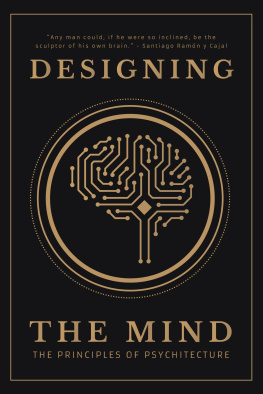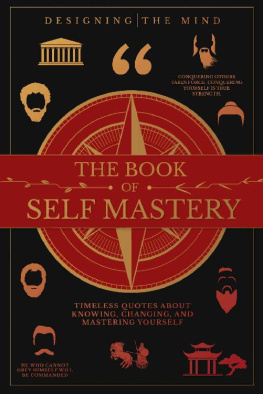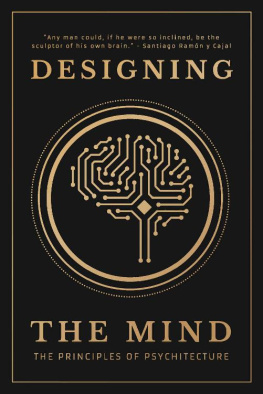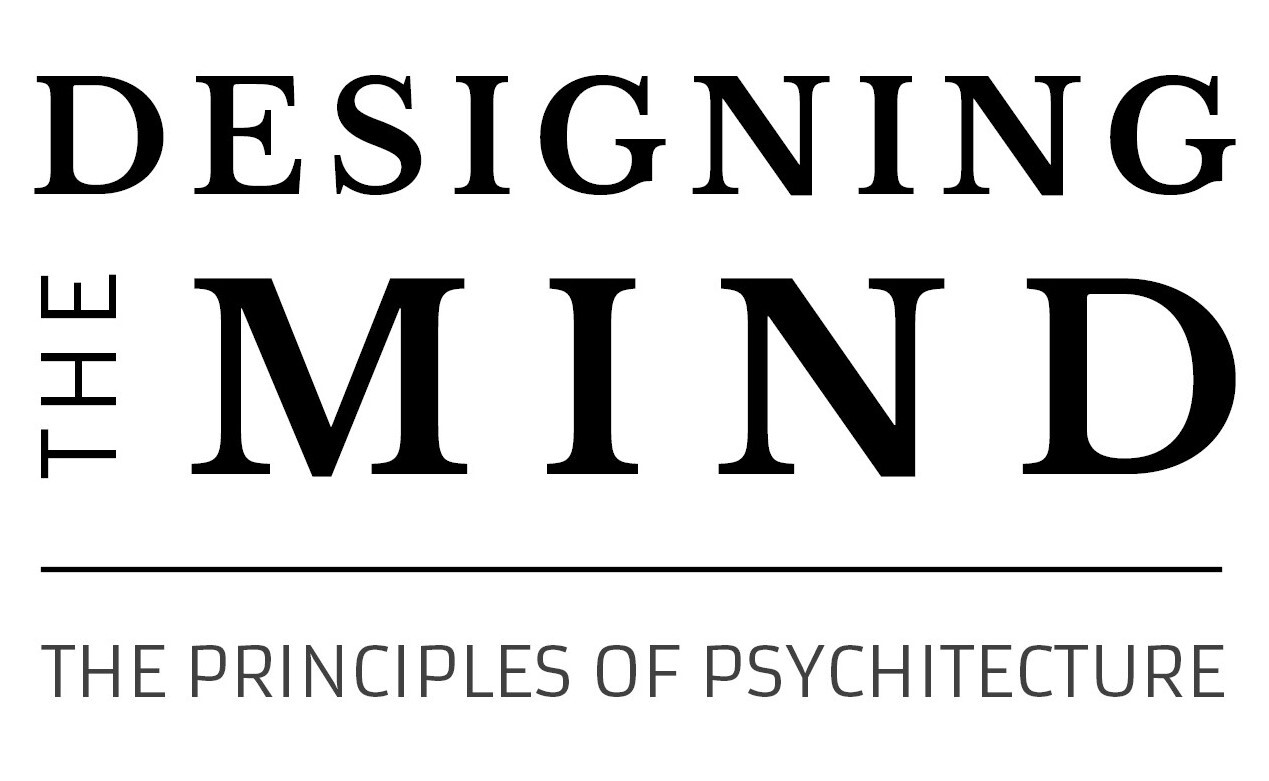| Designing the Mind: The Principles of Psychitecture |
| Ryan A Bush, Designing the Mind |
| Vibhatsu (Jan 2021) |
|
| Rating: |
| Tags: | Psychology, Philosophy, Neuroscience, Mind, Brain, Transformation |
| Psychologyttt Philosophyttt Neurosciencettt Mindttt Brainttt Transformationttt |
The Instant Cult Classic on the Art of Reprogramming Your Own Psychological Software
Neuropsychology tells us that the human mind is infinitely malleable and adaptable. We know it is possible to rewire emotions and build deep tranquility into our minds. We know we can overcome the biased beliefs and self-limiting habits that hold us back from our potential. Yet when we actually seek to modify and master our minds, we are usually met with shallow life hacks and fleeting fixes.
Fortunately, many great ancient philosophers left behind the open-source cognitive code for altering your own mental patterns and becoming your ideal self. Legendary thinkers like the Buddha, Marcus Aurelius, Friedrich Nietzsche, and Abraham Maslow have revealed the insights for building a brilliant mind, and award-winning systems designer, Ryan A Bush, weaves them into a vital theory for helping individuals scale the heights of self-mastery and lead great lives.
If you struggle with persistent negative thoughts, stress and anxiety, or difficulty setting or achieving your goals, this modern self-mastery manual is essential reading. After reading this book, you will understand:
- How your mental algorithms determine your personal trajectory
- How the Stoics overcame negativity and cultivated unshakeable peace
- How to master the mechanisms behind your habits and behaviors
- The right way to introspect and balance rationality and emotion
- How the Buddha mastered his thoughts and desires
- The difference between decoy goals and defined goals
- The four threats to self-direction: craving, compliance, comfort, and corruption
- How to use your desires to fuel you instead of make you suffer
- How to put an end to negative thoughts and rumination
- How to achieve big goals effortlessly
- And much more
Though most never learn to change their default programming, it is possible to rewire your cognitive biases, change your ingrained habits, and transform your emotional reactions. The process of psychitecture will enable you to unplug from your own mind, alter its underlying patterns, and become the architect of your own enlightenment.
About the Author
Designing the Mind is a self-development organization focused on providing wisdom education and expanding human potential beyond the norm. It draws heavily from thinkers like Lao Tzu, the Buddha, Marcus Aurelius, and Nietzsche, but its something new. From cognitive therapy and humanistic psychology, yet it isnt meant for the broken. Its central theme of psychitecture represents a new, modern way of viewing and iteratively improving your mind.
Ryan A Bush is a designer and thinker focused on building better systems, better people, and a better future. As founder of Designing the Mind, Ryans central purpose is to provide wisdom education and expand human potential beyond the norm.Ryans background is in the design of systems - he works with tech startups to design and develop everything from patented physical products, to software, to buildings, to business models. But his most relevant credential is a lifelong appetite for introspective investigation, ravenous reading, and obsessive self-optimization.For more than a decade, Ryan has been studying the insights of ancient teachers, practical philosophers, and cognitive scientists. His ideas have been featured on major platforms like Lifehack and Modern Stoicism, and he has been a guest on podcasts with topics ranging from emotions to philosophy to motivation.In his books, Designing the Mind: The Principles of Psychitecture, and The Book of Self Mastery, he draws heavily from the insights of thinkers like Lao Tzu, the Buddha, Marcus Aurelius, and Nietzsche and attempts to assemble them to form a new vision for psychological growth and self-mastery.
Content
DESIGNING THE MIND
First published by Designing the Mind 2021
ePUB Created by Vibhatsu, 2023.
Copyright 2021 by Designing the Mind, LLC.
All rights reserved. No part of this publication may be reproduced, stored or transmitted in any form or by any means, electronic, mechanical, photocopying, recording, scanning, or otherwise without written permission from the publisher. It is illegal to copy this book, post it to a website, or distribute it by any other means without permission.
Introduction
The year is 2084. Youre playing a game of four-dimensional basketball, and one of your teammates makes a backhanded insult about your free throw skills. Immediately, a few things happen in your mind.
1. You feel pain.
2. You have the urge to reach through your virtual reality brain implant and make the guy regret his smug little comment.
3. Your self-esteem spends the next few days/weeks in a tailspin, causing you to ruminate over the insult, imagine and reimagine how you wish you had responded, and suffer.
But in the midst of this process, you think to yourself, Wait a minute - its 2084. We have technology for this.
So you open up an application through your neural interface that allows you to quickly modify your own brain. You sit through a few mind advertisements, try not to think any thoughts the government wouldnt like, and then youre in.
With just a few brain clicks, you are able to tell the software to remove your tendencies to suffer, seek revenge, and ruminate when someone insults you. You even add a feature that allows you to actually feel joy when you are insulted and to quickly respond with a witty and good-natured retort. Your new automatic response allows you to diffuse hostile situations and look like a rockstar, instantly making that awful sting of an insult a thing of the past.
By the year 2084, it is entirely plausible that we could have a method for directly modifying our brains to remove the maladaptive tendencies that hold us back. But unless this book has stood the test of time unreasonably well, you are most likely reading in an era in which this process will sound like science fiction. We cant just remove our mental bugs with a few clicks. Our ingrained psychological limitations are set in stone for the time being, right?
We are not as powerless as you may think. With the right cognitive tools, it is possible for anyone to make modifications to their own psychological software: their mind. Our unwanted psychological tendencies really do break down into what can be compared to software algorithms. In this case, the insult is an input which triggers a kind of mental program. This program initiates a distorted thought cycle that causes you to reevaluate your self-worth in response to disrespect from your peers. This thought cycle then outputs emotional and behavioral responses which cause you to feel terrible and react impulsively.
Because these responses were programmed into us eons ago, humans have had a very long time to study them. Though they lacked our modern technological metaphors, ancient thinkers began examining and developing counter-algorithms for many of our problematic mental modules.


![Dzhon Hargrejv - Mind Hacking [How to Change Your Mind for Good in 21 Days]](/uploads/posts/book/875008/thumbs/dzhon-hargrejv-mind-hacking-how-to-change-your.jpg)









